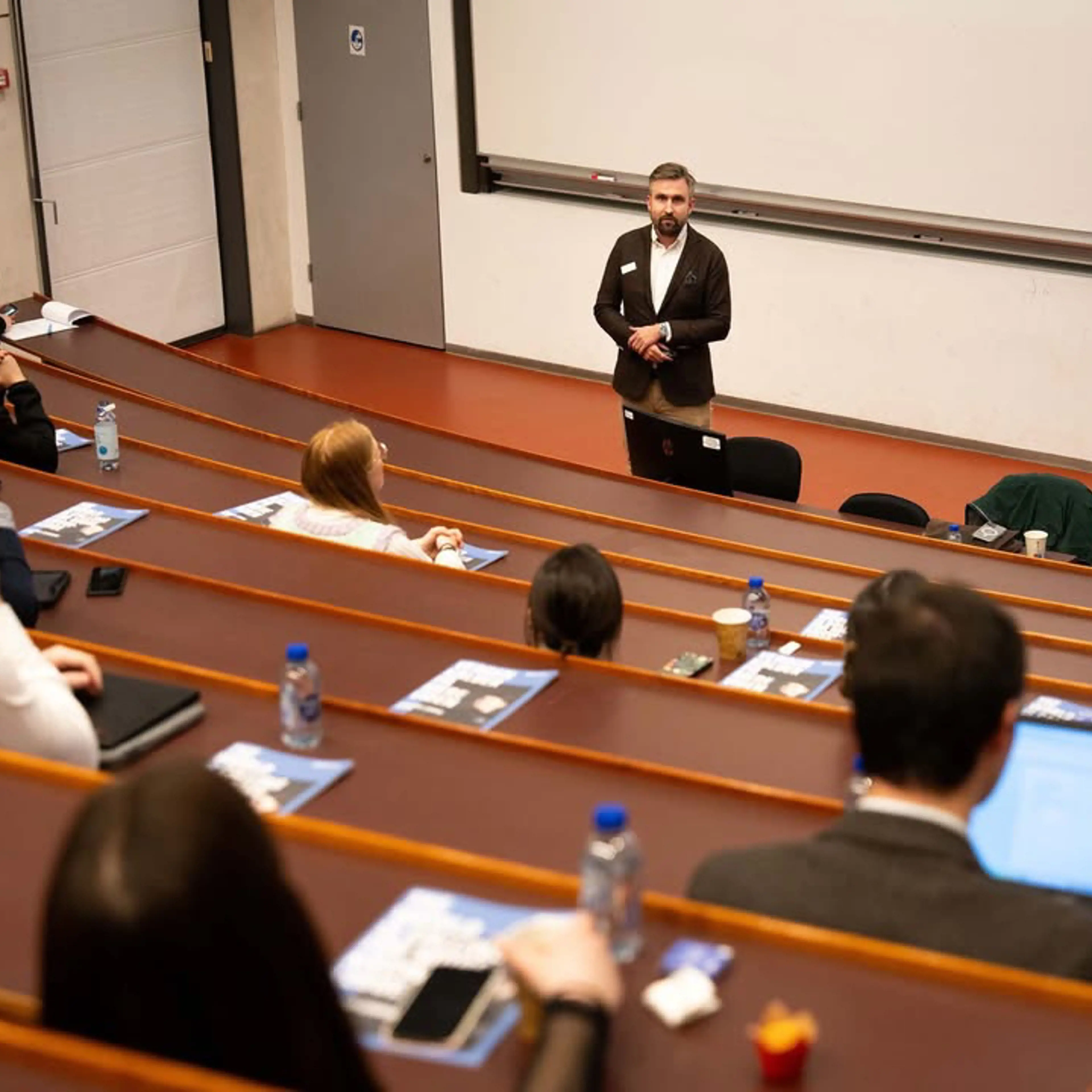Get a taste of the knowledge shared at 'Behavioural investing: Uncovering hidden limitations and biases'.
Behavioural investing
Investing isn’t only driven by capital. Inspired by the field of behavioural finance, this event uncovered the hidden biases within both professional and personal investing.
By CBS Executive EducationINVESTING IS EMOTIONS
Perhaps you are one of those who stop investing in times of crisis. Maybe you sold your shares in Bavarian Nordic as soon as monkeypox became a topic of discussion. Or perhaps you closely followed as the GameStop stock skyrocketed and even bought into the idea in the end.
Choices like these may seem rational. However, in reality, they are driven by something entirely different than the power of thought - namely, emotions. Even though many would argue that they invest based on numbers and experience, emotions such as fear, spontaneity, and an adrenaline rush play a role. Just ask those who research, teach, and are fascinated by Behavioral Finance.
"People have existed for a few hundred thousand years and have successfully adapted and survived harsh environments," says Jimmy Martinez-Correa, Associate Professor in Applied Microeconomics, Ph.D. at CBS. "Many of the emotions and biases we call 'biases' are actually embedded, unconscious decisions to avoid situations that can kill us. Today, people can apply the same processes they used for thousands of years to avoid dangerous predators when making investment decisions in the stock market."
It is now recognised that market movements are not purely rational, and the field of Behavioral Finance seeks to explain why. This not only enlightens us about the market but also our own investment behaviour.
"Understanding better how human emotions and biases drive our decisions can help us anticipate decisions that can lead to economic mistakes. Because we now know that the decision-making process that humans have used for thousands of years to survive may not be the best tool for making certain choices we face in today's society," explains Martinez-Correa.
Both private and professional investors would hardly admit that they are influenced by external and internal circumstances. But in practice, it is difficult not to let emotions take over. Martinez-Correa has an excellent example of this:
"You may have a goal of buying a summer house in 10 years. Therefore, you made an investment with a 10-year horizon a year ago, and when you look at the uncertainty and what is happening in the stock market now, you see a trend pointing towards a recession in the near future. A natural impulse would be to change course, close the 10-year investment, and run away with the cash (even though you would lose a lot of money), just as you would run away in nature from something resembling a deadly predator."
“Understanding better how human emotions and biases drive our decisions can help us anticipate decisions that can lead to economic mistakes.”
Jimmy Martinez-Correa
Associate Professor at CBS
At the CBS event "Behavioural investing: Uncovering hidden limitations and biases," we delved into the hidden mechanisms that influence our investments. Martinez-Correa, who also teaches the Behavioural Finance course at HD, shed light on some of these in his presentation.
"I talked about the concept of Behavioural Portfolios, which is a framework that helps individuals make healthier financial choices when they are concerned about factors beyond the risk and return dimensions of investments. For example, people may worry about their children's financial stability. As a parent, if I set aside some money to save for my children's future, I may not be willing to invest that money with the same level of risk as I would for myself. This example demonstrates the dimensions that investors may worry about, which are not necessarily related to the risk and return dimensions of investment opportunities."
Is new always good news?
When it comes to investments, many people like to jump on the latest trends. Jacob Hvidberg Falkencrone, Principal Analyst at Dansk Bank, knows a lot about this and spoke on it at the event.
"Both long-term and short-term market trends have a significant impact on an individual's behaviour and their way of investing. Some of the long-term trends we see include greater interest in index-based investing, a stronger focus on sustainability, and increased demand for investment products that incorporate ESG factors. These are more long-term movements that gradually change investors' portfolios.
However, we also observe that short-term trends or hypes can have a significant effect. We saw many individuals enter high-risk investments like meme stocks or cryptocurrencies when they were popular, and in general, we sometimes see tendencies of herd mentality among individuals. That means investors flock to what is hot right now, primarily driven by emotions and euphoria rather than long-term analysis."
“Investing takes time, so don't panic over short-term fluctuations or keep checking your portfolio multiple times a day.”
Jacob Hvidberg Falkencrone
Principal Analyst at Danske Bank
Speaking of trends, sustainable investments are currently in focus. However, the desire and willingness to invest sustainably must be complemented by strategy and rationale, according to Martinez-Correa.
"Many people become aware of sustainable investments through a friend or someone they trust, or perhaps they have heard it in the news or on their social media," says Martinez-Correa. "Usually, this information they observe comes in the form of news like 'Company X has high ESG ratings, and it's a fantastic investment opportunity' or comments from friends like 'I have invested in these few green companies and made significant profits with them in the past year.'
The problem with this is that it often translates into the tendency to invest heavily in a few or even one stock, which concentrates the risk without much consideration for long-term financial goals and individual characteristics of investors' financial status. The Behavioural Portfolio framework is a way to deliberate these types of choices and make healthier financial decisions."
Through his work to ensure that private investors have a solid foundation for successful long-term investments, Falkencrone also sees how sustainability is becoming more prominent.
"There has undoubtedly been a significant increase in demand and interest among private investors to invest more sustainably, particularly in the younger segments. We experience this both in conversations with customers and in examining what they invest in. Themes like green energy are very popular. Many investors express great interest in sustainability, but not all follow through on it. Here, I believe it is important to provide even more information and education to customers about sustainable investing since it is not always black and white, which can sometimes make it challenging to relate to."
Strategise your impulses
According to Falkencrone, the first step to becoming more aware of one's behavioural patterns is to acknowledge that one is most likely not acting entirely rationally when engaging in financial markets.
"Unfortunately, it's often easier said than done, but the most important thing an investor can do is to set aside emotions and approach things more rationally. Therefore, it's important to take precautions, diversify investments well, and block unnecessary noise. Remember that investing is a long-term discipline, and your success should be measured on that scale, not whether you're up or down for the day, month, or even the year. Investing takes time, so don't panic over short-term fluctuations or keep checking your portfolio multiple times a day.
On average, the stock market is down about every other day, and that just makes it harder to keep a cool head. The market fluctuates over time; it has always done so and always will. However, history has shown that over longer horizons, it has always recovered losses and then some. A piece of specific advice to avoid unnecessary changes in your investment is to write down your strategy. If you want to sell, evaluate if there is something fundamental that has changed. If not, hold on."
If you found this topic interesting, sign up via the form below to ensure you don't miss out on our next events.
Stay tuned for the next invitation, coming soon!


